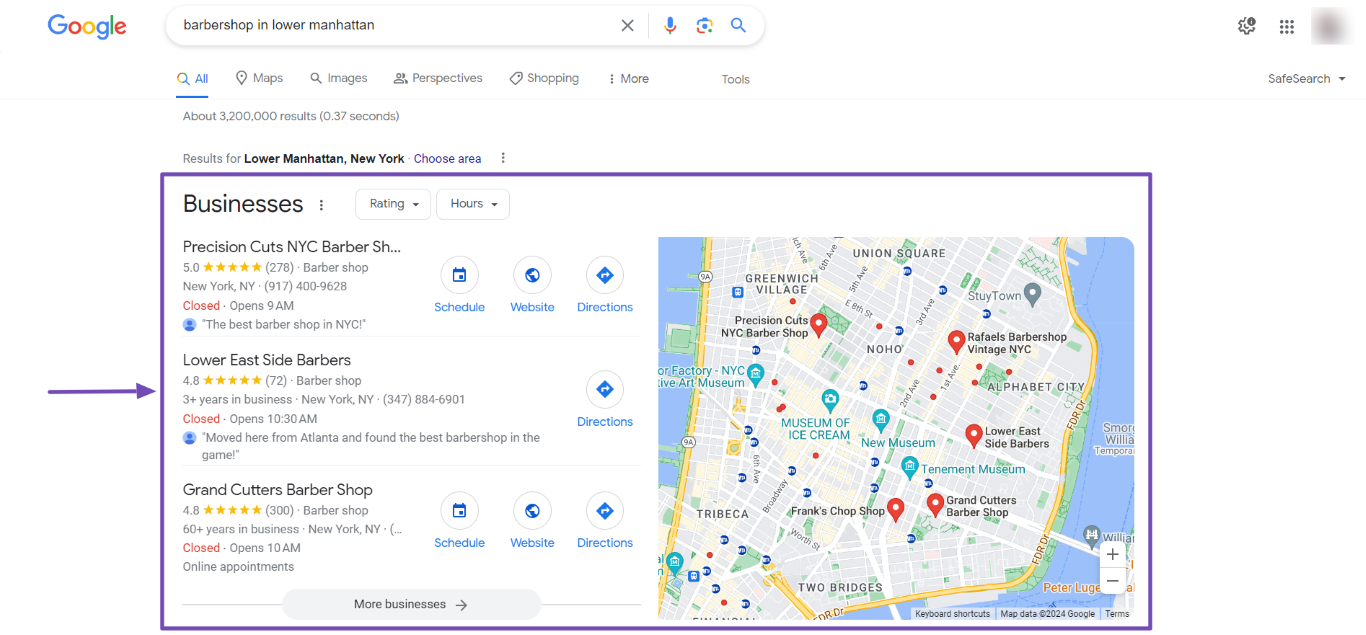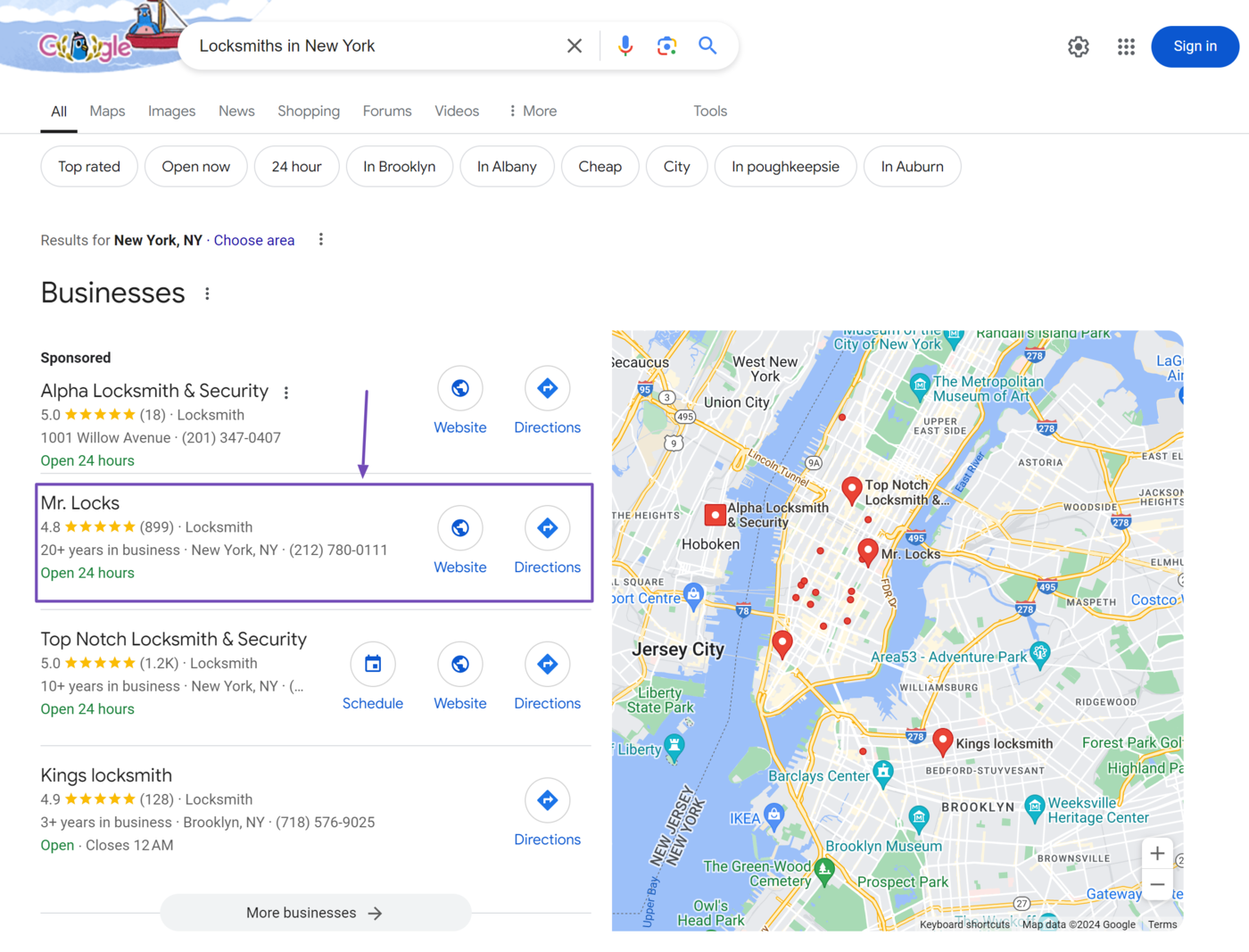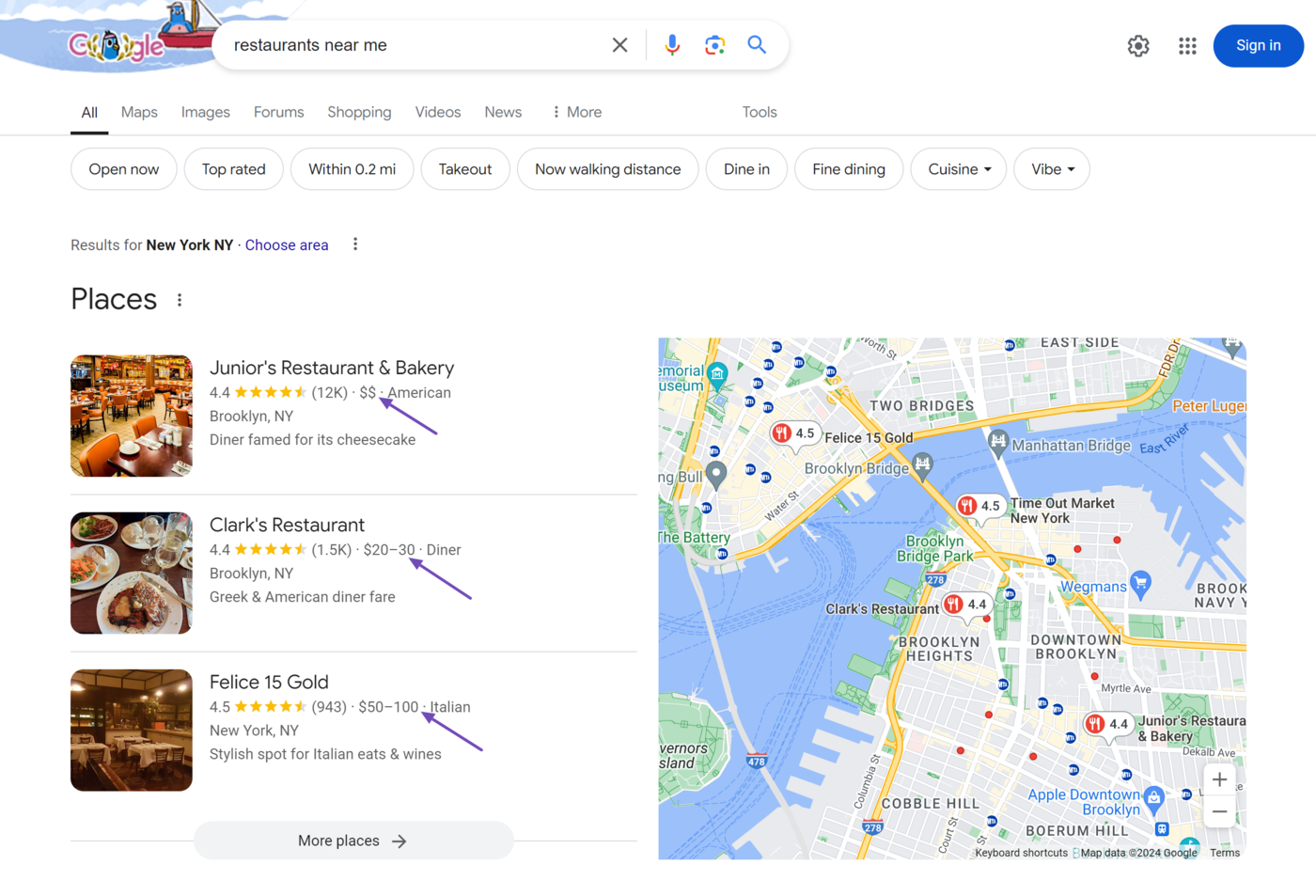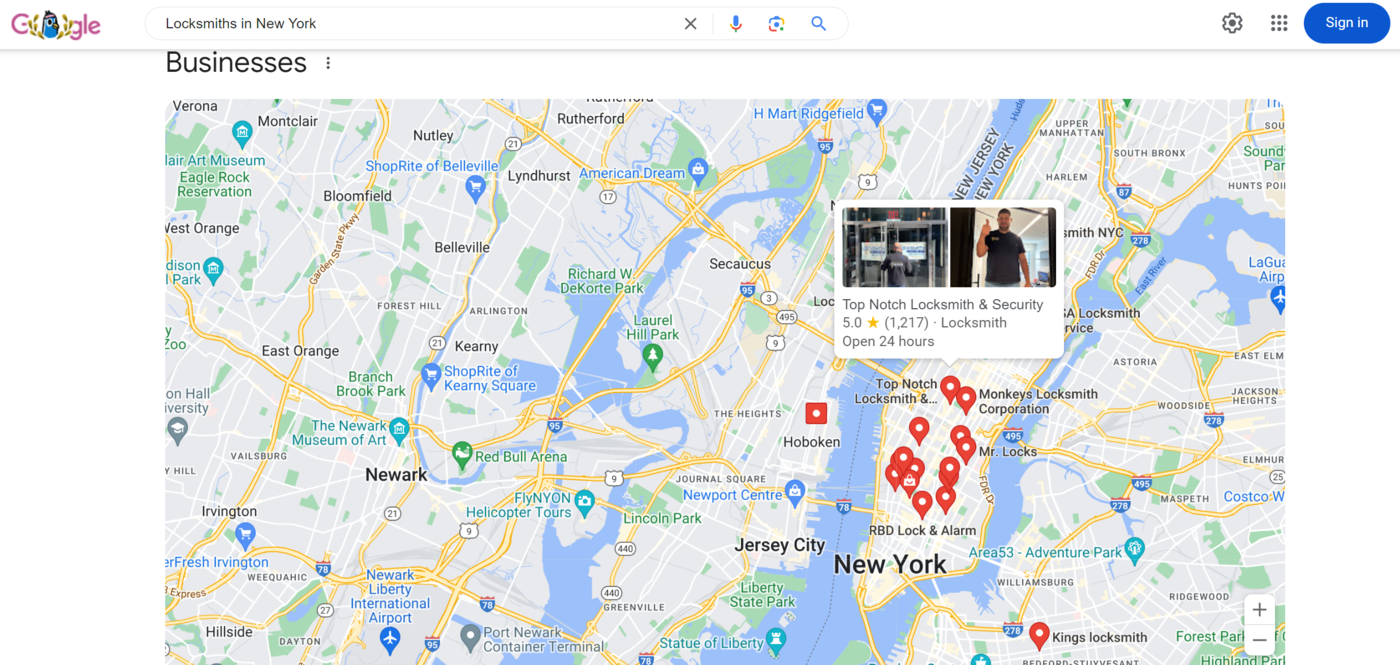What is the Local Pack?
The Google local pack refers to the map with three or more local businesses Google returns in response to local search queries. These queries are considered local because they are used by searchers seeking information about a local business. It is also called the Google Map Pack or the Google Local Map Pack.

Search engines display the local pack in response to local search queries. These queries typically include the name of a country, state, town, city, or words like near me oder near [location]. For example, “barbershop in lower Manhattan” and “yoga classes near me” are local search queries that will trigger the local pack.
The local pack typically showcases important details of three or more local businesses, including their name, address, phone number, opening time, and customer ratings. It may also include links to their website and map directions to their location.

Meanwhile, some may also include the cost of the services offered at the business. For example, this local pack for a restaurant displays the price range of their menu.

The map also contains details about more businesses that are relevant to the searcher. Clicking on it will open up the Google Local Finder, which contains more businesses relevant to your search. You can always click the location pin to reveal the details of the business.

Importance of the Local Pack
The local pack provides businesses with more visibility. It typically appears above the regular 10 blue link results on the search results page. This makes it the result that the searcher finds first, making it more likely that they will get the click.
As for the searcher, the local pack provides them with easy access to the business offering the service they searched for. This leads to a positive user experience as they can find what they want without much effort or time wasting.
How Google Identifies Local Searches
If you are looking to rank for local searches, then you should know the type of search queries that trigger the local search results. Typically, the local pack appears when a query contains:
- Geographic keywords
- Near me or Around me
- Service or trade words
1 Geographic Schlüsselwörter
Google recognizes searches with the name of a region, city, state, or country as a local search. For example, Dentists in Westminster und Restaurants on Washington Avenue.
2 Near Me or Around Me
Searches that end with words like “near me” or “around me” will typically trigger the local search results page. For example, chocolate stores near me und hospitals around me.
3 Service or Trade Words
Searches that include the name of a trade or service will sometimes trigger the local search results page. For example, hair salon, auto mechanic, und auto repair.
How to Get Your Business in the Local Pack
Getting into the local pack takes a lot of work. The most valuable local pack position is limited to just three businesses, so there is usually heavy competition. However, the rewards are huge for businesses that appear in the local pack.
1 Create a Google Business Profile
Google selects businesses to display in the local pack from its Google Business Profile directory. Google Business Profile is a service that allows businesses to control how their information appears on Google. Creating one is a requirement for businesses that want to appear in the local pack.
You can refer to this guide on creating a Google Business Profile. You should ensure to fill in all the required details correctly, particularly your name, address, phone number (NAP), business hours, and website URL. You should also have high-quality photos and videos of your business.
2 Optimize Your Site for Local SEO
You should optimize your site for local SEO. This ensures that your content shows up when visitors search for local keywords.
You should also create localized content that addresses the interests and needs of your local audience. Then, be sure to include local keywords in your site’s content, such as meta tags, headers, und URLs. You can refer to this guide on optimizing your content for local SEO.
3 Optimize for Site for On-Page, Off-Page, and Technical SEO
While optimizing your local SEO, you should also ensure that your site is optimized for on-page, off-page, und technical SEO. You should not ignore these other types of SEO, as they are among the signals that Google uses to determine your ranking for local search queries.
4 Get Customer Reviews
Reviews are a local SEO ranking factor. They are a must for businesses that want to appear in the local pack. You should encourage satisfied customers to leave positive reviews on your Google Business Profile.
You should respond to reviews professionally and promptly, irrespective of whether they are positive or negative. Overall, you should aim to maintain a high overall star rating and ensure you get a lot of positive reviews.
5 Build Local Citations
Local citations refer to online mentions of your business name, address, and phone number (NAP). The NAP is a local ranking factor. Google also uses it to assess the legitimacy and popularity of your business.
Local citations can be structured, that is, it appears in directories and data aggregators. It could also be unstructured, that is, it appears in blogs and social media posts.
You should ensure that your business gets as many local citations as possible. The structured ones should have your NAP, while the unstructured ones should contain all or parts of your NAP.
6 Use Local Schema Markup
The Local Schema provides Google with the structured details of your business. To improve your chances of appearing in the local pack, you should include the Local Schema on your site and content.
You should ensure to include crucial business details like your business name, address, phone number, operating hours, and geo-coordinates in the Schema. You can refer to this guide on optimizing the Local Schema markup on your site.